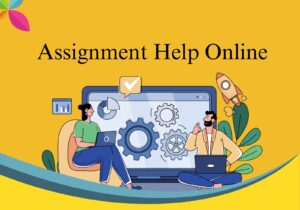Passing through different levels of studies is a natural part of student life—whether moving from secondary school to university, settling into university, or acclimatising to postgraduate study. Each stage has new demands, environments, and stressors. Coping with the transition successfully requires flexibility, making good plans, and having good support systems. This guide looks at practical strategies, tools, and lessons for students to embrace change, manage study commitments, and make use of assignment help when needed to thrive on their journey to education.
Why Academic Transitions are Important
Transitions between studies usually involve drastic shifts in workload, independence, and approaches to studying. They could affect performance, motivation, and psychological health if not addressed early. Awareness of the characteristics of such transitions can help learners establish a stable platform for academic success.
- Greater workload and academic demands
- Getting used to new modes of teaching and assessments
- Social integration and new network building
- Time management and individual well-being
- Pursuing academic or writing support when necessary
Through planning for these changes in advance, students can prepare themselves emotionally and pragmatically.
Preparing for Educational Changes: Essential Strategies
1. Cultivate a Growth Mindset Early On
A growth mindset helps students view challenges as opportunities and not as hindrances. It fosters persistence and resilience in the face of academic change. It can also result in better grades and self-improvement over time.
How to develop a growth mindset:
- Focus on progress, not on being perfect.
- Reflect on feedback and capitalize on it.
- Delight in learning from mistakes.
- Ask for learning opportunities.
2. Set Academic Goals Strategically
Setting clear, achievable goals gives focus to your academic pursuit. These can include acquiring specific skills, maintaining a grade average, or improving writing abilities. Set short-term and long-term goals, and review them at regular intervals.
Use SMART goals:
- Specific: Identify exactly what needs to be done.
- Measurable: Track progress over time.
- Achievable: Be realistic about limitations.
- Relevant: Alignment between priorities of the academic.
- Time-bound: Set reasonable deadlines.
Adjusting to New Learning Contexts
Whether moving from university to college or starting a new module, learning situations can vary quite significantly in organization and expectations.
1. Acquaint yourself with curriculum and assessment styles
Different institutions will assess students differently through essays, exams, presentations, or group work. Understanding what comes next at every level helps to plan study methods accordingly. Assignment help or writing assistance for beginners in some types can be a good approach to adjust better.
2. Master Independent Study
University study typically includes more independent learning. Without continuous guidance, students are compelled to acquire self-discipline, time management, and research skills.
Tips for succeeding at independent study:
- Create an appropriate study setting.
- Keep a weekly schedule.
- Break large assignments into manageable steps.
- Utilize planners or computer software to keep deadlines on track.
Seizing Support Mechanisms When Transitioning
1. Leverage Academic Resources
Most institutions offer academic support, including workshops, writing centers, and access to advisors. Make use of these services, particularly when switching to a different level of study.
Some students benefit from having assistance with academic assignment or personal writing guidance to better understand formatting, references, or structure.
2. Use Peer Networks Wisely
Study groups and peer support can ease academic transitions through shared experiences and insights. Peer collaboration can reduce academic stress and improve memory recall.
Effective Time Management for Academic Progress
1. Create a Personal Study Plan
Transitioning to a more demanding academic life typically involves juggling multiple responsibilities at once. A personal study plan is where time is distributed efficiently between lectures, coursework, revision, and leisure time.
Tools to optimize time management:
- Google Calendar
- Notion or Trello
- Pomodoro timers
- Weekly planners
2. Prioritize Tasks for Better Results
Use task prioritization tools like the Eisenhower Matrix or ABC Method. When there are several deadlines, some students also avail online assignment help to stay on track and avoid last-minute stress.
Enhancing Academic Skills for Enhanced Performance
1. Enhance Research and Analytical Skills
With increased study levels, students ought to exercise critical thinking and conduct deep analysis. On whether to do a thesis or a normal essay, there is time to master these skills.
Tips on how to enhance research skills:
- Use academic databases like JSTOR, Google Scholar, and ScienceDirect.
- Master the art of citation.
- Train yourself in synthesizing multiple sources into credible arguments.
For students who need help, assignment help services can provide templates, outlines, or commentaries to further refine written content.
2. Improve Academic Writing and Communication
Academic writing is much different than common communication. Transferring students may struggle with tone, structure, and citation. Assistance such as university writing centers or writing services can help overcome this challenge.
Handling Academic Stress During Transitions
Change is stressful. Academic stress management is essential to performance and well-being.
Warning Signs of Academic Stress:
- Lack of motivation
- Procrastination
- Tiredness or burnout
- Difficulty in concentration
Stress Management Techniques:
- Practice meditation and mindfulness
- Maintain a regular sleep schedule
- Regular exercise
- Break down work into small, manageable parts to avoid being overwhelmed
- Seek tutoring or assignment assistance if needed
Using Technology to Support Academic Transitions
Today’s students have a range of digital tools available to support transitions and productivity.
Shared platforms and tools:
- Grammarly or Hemingway for editing
- Mendeley or Zotero for citations
- Evernote or OneNote for note-taking
- Online writing assistance sites for reviewing content
Learning about Academic Support Services
Academic life only becomes more challenging, and seeking assistance is not a sign of weakness—it’s a strategy. Support services are in place to assist with all parts of the student process, from essay writing to time management and beyond.
When to Turn to Outside Assistance:
- Buried under simultaneous deadlines
- Struggling with academic English
- Uncomfortable with referencing styles
- Don’t know how to structure an assignment
Students facing such challenges turn to assignment help or academic assignment help services to stay competitive. These services offer structured guidance while still encouraging independent learning.
Long-Term Adaptation and Academic Development
Adapting to change is not just about survival—it’s about growth. Each academic transition offers lessons in resilience, autonomy, and intellectual development.
Long-term adaptation strategies:
- Reflect on what worked and adjust accordingly
- Revise goals frequently as academic and personal priorities shift
- Stay curious and open to learning new ways
- Build a personal knowledge base with reliable tools and services
With structured resources like custom writing or assignment help online during periods of change can lead to cleaner and more confident scholarship work.
Conclusion
Academic transitions are a continuous aspect of student life. Whether one is jumping into a higher level of academic challenge or a change of instruction setting, success relies on preparation, adaptability, and use of the right tools.
Supportive services, planned study, and effective study habits allow students to greet transitions with confidence. For those who require extra support, websites like Assignment in Need (assignnmentinneed.com) offer resources and guidance to help students reach their academic potential using planned, responsible, and ethical academic support.






Be First to Comment